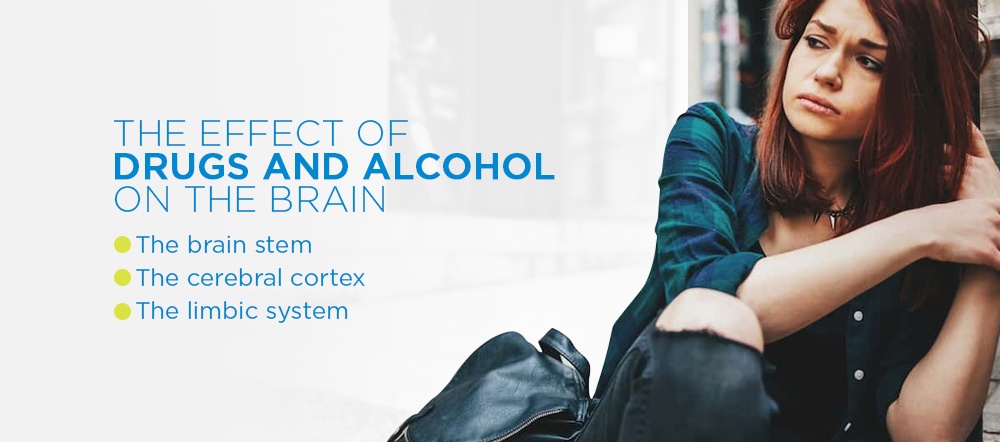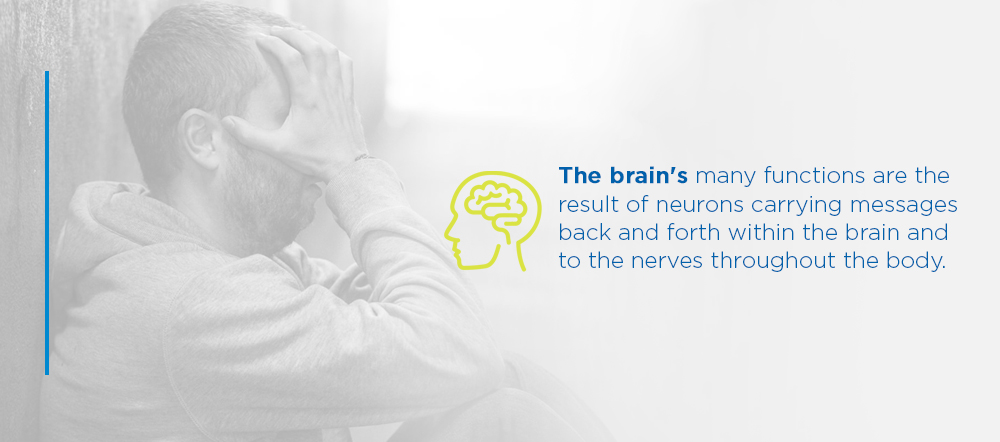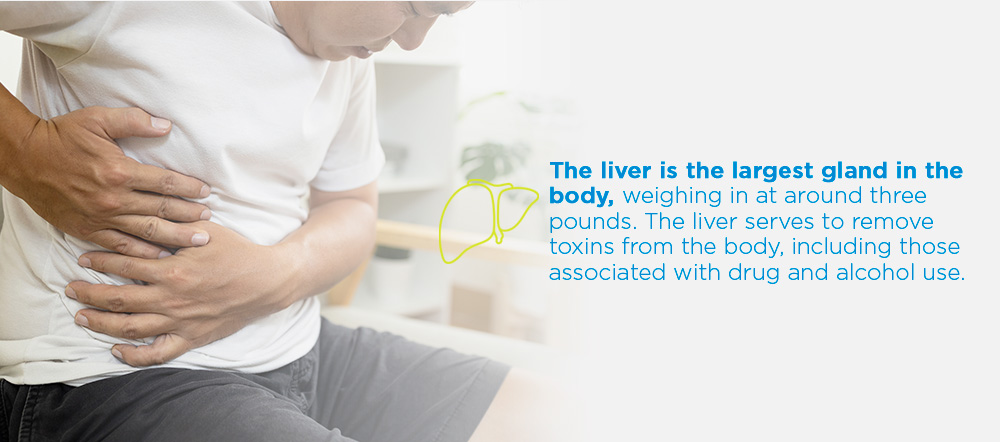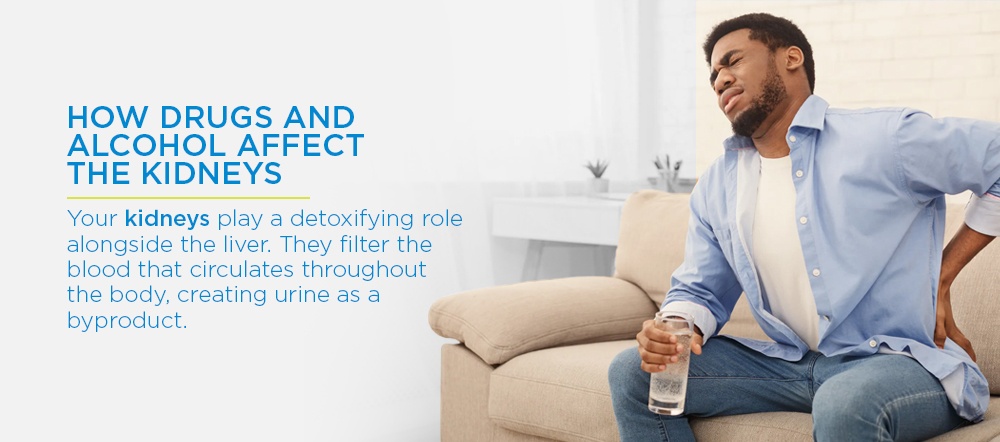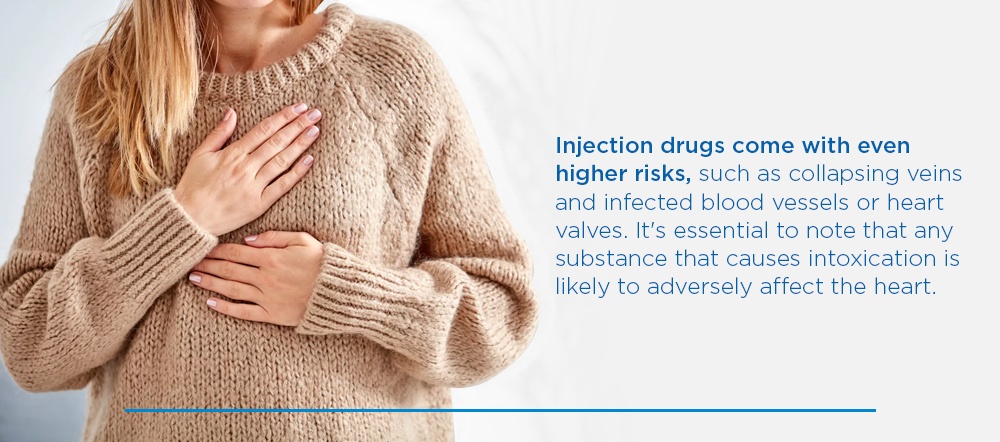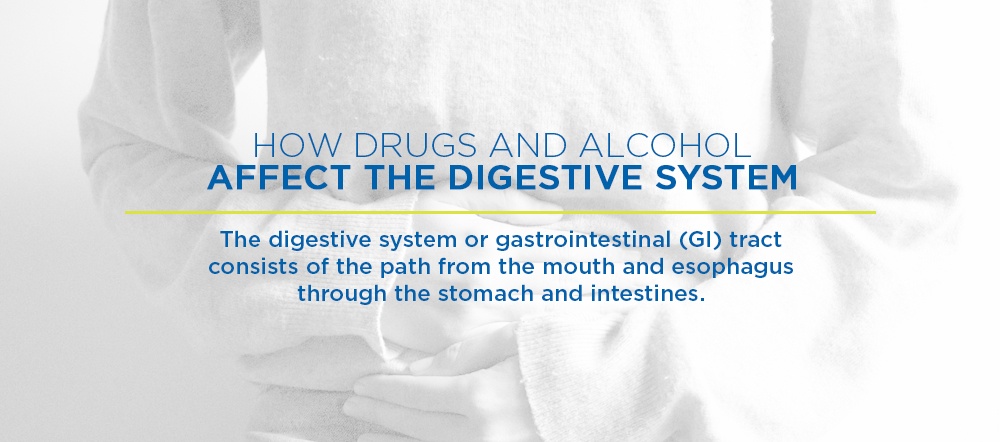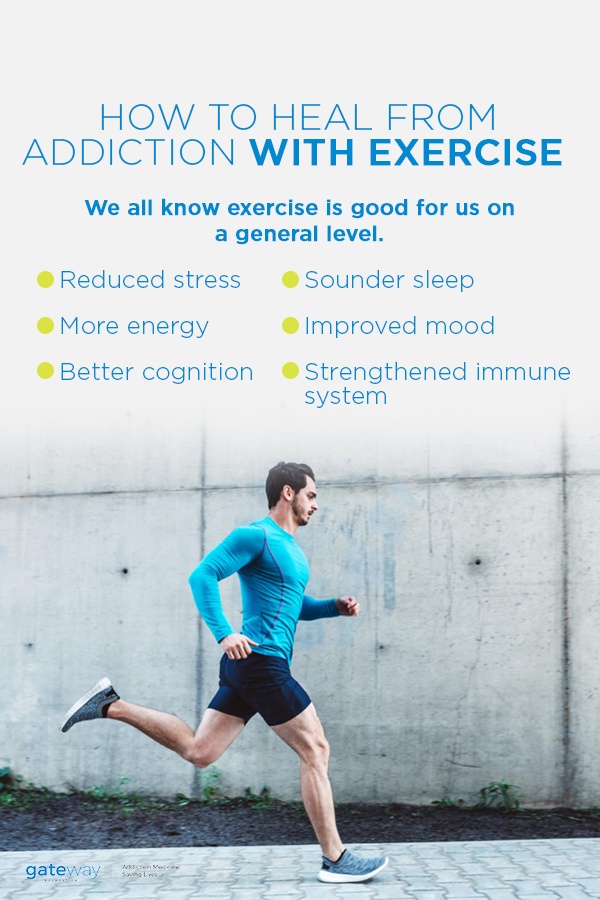- Jul 28
- Alcohol Addiction Treatment
Recovering from the effects of drug and alcohol misuse is a process and a lifelong journey. It goes beyond the act of eliminating substances of misuse from your system to building a strong foundation for a healthier way of life and the positive behaviors that go along with it. You already know that using substances damages the body. During active addiction, you likely got used to feeling groggy, exhausted and ill and accepted it as a part of your life. Can the body heal after prolonged substance use? Understanding the long-term physical effects of misuse is the first step toward healing.
- The Effect of Drugs and Alcohol on the Brain
- How Drugs and Alcohol Affect the Liver
- How Drugs and Alcohol Affect the Kidneys
- How Drug and Alcohol Misuse Affects the Heart
- How to Heal From Addiction With Nutrition
- How to Plan Meals in Recovery
- How to Heal From Addiction With Exercise
- How to Incorporate Exercise Into Recovery
The Effect of Drugs and Alcohol on the Brain
We typically talk about the brain in the context of addiction development and mental illness. However, the brain is the center of functioning for your physical body, and it is responsible for all your activity. Your brain is always performing voluntary and involuntary functions that addiction interrupts, resulting in sometimes permanent changes. Chronic substance use affects three main areas of the brain.
- The brain stem: The brain stem is responsible for controlling your heart rate, breathing and sleeping. If your brain stem is unhealthy, it will impair your ability to function in multiple ways.
- The cerebral cortex: This part of the brain is involved in problem-solving and decision-making.
- The limbic system: The limbic system houses the pleasure and reward system that causes people to repeat behavior. It is an essential part of how people develop addiction.
Constant Communication in the Brain
The brain’s many functions are the result of neurons carrying messages back and forth within the brain and to the nerves throughout the body. This communication process is continually happening, and regulates every thought, feeling and action you experience. Although the process is highly complex, there is a simplified way to explain it.
- A neuron receives information from another neuron, then passes the information on to the next.
- Neurotransmitters carry information between neurons, attaching themselves to receptors on neurons to deliver the message.
- Transporters recycle the used-up neurotransmitters, returning them to the neuron from which they originated.
Substance Use Breaks Down Communication
Healthy brains can seamlessly facilitate communications between neurons. When drugs and alcohol enter the picture, however, the process starts breaking down. As the brain becomes used to a substance being continually present, it begins to adapt by altering its chemical composition and production of neurotransmitters. The extent of this effect depends on the type of substance used and the duration of use, but the result is always cognitive impairment of some level.
Drug and alcohol use profoundly affects the brain’s production of dopamine. The brain typically produces dopamine, a specific neurotransmitter, on its own. The production is usually a reward response for everyday actions, making it pleasurable to engage in activities like socializing, eating and exercising.
Drugs and alcohol trigger artificial surges in dopamine levels, far higher than what you would get from natural stimuli. When a substance is frequently present, the brain adjusts to the new dopamine levels and stops producing as much on its own. That means when you stop using the drug, dopamine levels drop significantly and you experience the painful symptoms of withdrawal. Luckily, permanently quitting drug and alcohol use offers your brain a chance to recover and re-balance.
Continued substance use — particularly of alcohol — may lead to irreversible neuron death and overall shrinkage of the brain, making it essential to stop substance use as soon as possible to preserve the most brain function.
How Drugs and Alcohol Affect the Liver
The liver is the largest gland in the body, weighing in at around three pounds. The liver serves to remove toxins from the body, including those associated with drug and alcohol use. The liver also works to:
- Facilitate dietary fat digestion through the secretion of bile into the intestines.
- Produce albumin, necessary to move molecules through the bloodstream.
- Facilitate blood clotting by producing specific proteins.
Because the liver is one of the first lines of defense in cleaning the blood, all drugs pass through it at some point, and all have adverse effects. A non-exhaustive list of drugs that damage the liver includes:
- Alcohol
- Anabolic steroids
- Dextromethorphan
- Inhalants
- Heroin and other opioids
The liver has remarkable regenerative properties and can generally recover from infrequent substance use. However, the longer an addiction persists, the more cells die, eventually making it impossible to reverse alcohol damage.
Drug-Induced Liver Disease
Liver damage from drugs and alcohol can occur in several different ways. In some cases, the substance itself causes damage to the cells, while the liver converts other drugs into a harmful byproduct. Some of the specific diseases that drugs and alcohol can induce include the following.
- Blood clots in liver veins
- Cirrhosis
- Cholestasis
- Fulminant hepatitis
- Hepatitis
- Necrosis
- Steatosis
Liver disease is an incredibly severe condition, marked by these central symptoms:
- Feeling physically weak
- Feeling tired or exhausted
- Pain in the abdomen
- Yellowing of the skin and eyes (jaundice)
- Nausea and vomiting
These symptoms are signs that someone is experiencing liver damage. The question of how to reverse liver damage depends on what action the person takes next. There is a chance of liver recovery after stopping drinking, but if substance abuse does not stop, the individual may go into liver failure. Once the liver fails, the individual’s life is in danger and the damage is irreversible. In some cases, a transplant can save a life, but there is no guarantee of receiving one.
How Drugs and Alcohol Affect the Kidneys
Your kidneys play a detoxifying role alongside the liver. They filter the blood that circulates throughout the body, creating urine as a byproduct. The kidneys produce urine, then send it to the bladder, where it waits for excretion. In a healthy person, the bladder and kidneys work in tandem to prevent the buildup of fluid and waste products, as well as prevent dehydration. The use of drugs and alcohol puts more chemicals into the bloodstream that the kidneys have to deal with, straining their ability to keep the blood clean. These substances are particularly dangerous to the kidneys:
- Alcohol
- Cocaine
- Inhalants
- Heroin
- Prescription opioids
While the kidneys can frequently recover if substance use stops, continuing to use drugs or alcohol can result in acute kidney failure that may not be reversible.
How Drug and Alcohol Misuse Affects the Heart
Many people who use drugs or alcohol don’t realize these substances can cause severe harm to the heart and cardiovascular system. Chronic substance use can lead to:
- Abnormal heart rate
- Arrhythmia
- Heart attack
Injection drugs come with even higher risks, such as collapsing veins and infected blood vessels or heart valves. It’s essential to note that any substance that causes intoxication is likely to adversely affect the heart. Intoxication arises from the substance interacting with the nervous system, which directly controls the heart.
Signs of a Heart Problem If You’re Using Alcohol or Drugs
Anyone using substances needs to watch out for these potential signs of a developing heart problem:
- Fluctuating blood pressure
- Heart rate changes
- Chronic headaches
- Pain in the stomach
- Changing body temperature
Damage to the heart and cardiovascular system may culminate in a heart attack, and may not be reversible depending on the drug you were using and when you decided to quit.
How Drugs and Alcohol Affect the Respiratory System
The respiratory system works in conjunction with the heart to oxygenate the blood through breathing in oxygen and exhaling carbon dioxide. Any damage to the respiratory system can result in severe illness and chronic breathing problems can arise. Snorting or inhaling drugs such as cocaine, inhalants and marijuana most profoundly affect the respiratory system.
Respiratory Illnesses Tied to Substance Use
Continuing to use drugs can lead to a host of different respiratory illnesses. Some of the most common problems resulting from addiction are:
- Asthma
- Chronic bronchitis
- Emphysema
- Lung cancer
- Respiratory failure
Asthma is the most reversible of these conditions, and frequently goes away after a period of abstinence. Other illnesses like emphysema require treatment as soon as possible, or they may become fatal.
How Drugs and Alcohol Affect the Digestive System
The digestive system or gastrointestinal (GI) tract consists of the path from the mouth and esophagus through the stomach and intestines. Here is where food gets broken down and digested, and nutrients extracted for the body’s use. Without a functioning digestive system, you cannot get all the vitamins and minerals you need from food, which can lead to damaging deficiencies over time. Some drugs cause indirect damage to the digestive system by forcing the liver to work harder, while others like alcohol cause direct harm to the cells lining the GI tract.
Signs of Gastrointestinal Problems
Typically, a person will see the following signs of problems in the GI tract before permanent damage sets in:
- Chronic dehydration
- Diarrhea or constipation
- Blood in stool
- Stomach cramps
- Nausea and vomiting
Once these symptoms become frequent, it means that you are getting closer and closer to irreversible damage.
Can Substance Misuse Impact Your Immune System?
The immune system is your body’s defense against illness from bacteria and viruses. A robust immune system makes it easier to combat and recover from sickness. Much of the immune system resides in the gut, which we already know is one of the systems damaged by addiction. While misuse of any substance can damage your immune system, alcohol’s impact is the most severe.
Diseases You May Be More Susceptible To
Those with an alcohol use disorder typically find they become sick more frequently, have more severe symptoms and take longer to recover than those who don’t drink. In many cases, infections require more antibiotics, which end up having less chance of working fully. In addition to the common cold and flu, chronic drinkers are more susceptible to diseases like:
- Bacterial peritonitis
- Pneumonia
- Hepatitis B and C
- Septicemia
- Urinary tract infections
Fortunately, the immune system can typically recover after several months of abstinence from alcohol, as the replenishment of gut bacteria fortifies the body’s defenses.
How to Heal From Addiction With Nutrition
Substance misuse of any type links with deficiencies in critical vitamins and minerals. These deficiencies pose a severe threat to both physical and mental health. Addiction tends to go hand in hand with poor lifestyle choices like disordered eating patterns, failure to exercise and failure to get enough quality sleep. As a result, addiction leads to multiple health problems in the long term. The question of how to repair liver damage from alcohol and drugs starts with nutrition and healthy eating habits.
A vital method for how to heal the brain after drug use is adequate nutrition. That means eating meals packed with vitamins and minerals and are not too heavy on the calories. As soon as someone reaches a stable point in their recovery, focusing on nutrition is one of the best ways to help the body heal from the damage of addiction.
If you overlook nutritional deficiencies and the need to treat malnutrition, you will continue to have elevated risk for disease and will have to deal with increased incidence and intensity of drug and alcohol cravings. Those in recovery should make it a priority to ensure the majority of their meals are dense in essential nutrients.
How to Plan Meals in Recovery
If you’re not sure how to recover from drug use, meal planning is a smart place to start. A good jumping-off point is the weekly meal plan. Think about your weekly schedule and how much time you have to cook and eat at home. For people who work or go to school full-time, the best place to start is often with one planned meal per day — usually dinner. Starting with just one meal per day can help you get the hang of meal planning so you can expand your plans more confidently in the future. Picking up a recipe book or searching for recipes online is a straightforward way to find meals you’re interested in preparing. Follow these rules of thumb when selecting meals for your plan:
- Look for meals that include healthy fats, like nuts, seeds, olive oil and avocado.
- Include lean proteins like those found in chicken, fish, tofu and low-fat dairy products.
- Opt for whole grains instead of foods made with white rice or white flour.
- Prioritize fresh foods over those with added sugar, preservatives and sodium.
- Get in plenty of fresh fruits and vegetables.
Once you’ve come up with a selection of meals you like and are ready to cook, you can make your grocery list. Doing so will ensure you have everything you need to make each meal, and may help keep you from straying too far from your plan while roaming the aisles of the grocery store.
Sometimes, a trial-and-error period is natural when learning how to meal plan. If possible, enlist the help of someone who has done meal planning themselves or even someone who is generally well-organized. If you want to see the best results from meal planning, consult with a registered dietitian who can help you flesh out your plan for healthier eating.
How to Heal From Addiction With Exercise
We all know exercise is good for us on a general level. However, when addiction begins to take over, most people shift to an entirely sedentary lifestyle that weakens the body even further. Exercise is crucial in bringing your body back into a healthy state, and also confers the following benefits.
- Reduced stress: The process of exercising causes the brain to release serotonin, a hormone that helps reduce the effects of stress-related hormones. It can help immensely with the depression many people experience in recovery.
- More energy: Most people in recovery report feeling sluggish and tired. Paradoxically, expending energy helps the body feel more energetic, making exercise a crucial tool for feeling healthier and more capable of daily activities.
- Better cognition: According to the Centers for Disease Control and Prevention, exercise produces both immediate and long-term positive effects on thinking, judgment, memory and learning.
- Sounder sleep: Sleep is essential all the time, and even more so during the early days of recovery. Regular exercise can help ease disturbed sleep and insomnia, reducing the chances of relapse and keeping the body well-rested.
- Improved mood: Not only does exercise reduce stress, but it can also improve your mood immediately afterward and for several hours beyond. When you feel more positive, it’s easier to continue making healthy choices, such as maintaining your abstinence and sticking to your meal plan.
- Strengthened immune system: Regular exercise helps reverse the effects of drug and alcohol use on the immune system by flushing bacteria out of your respiratory system and supporting white blood cell production and action.
How to Incorporate Exercise Into Recovery
Recovery is not just a state of being. It’s a process that requires constant action on your part. For this reason, it can be challenging to turn your focus and energy to a regular exercise plan. You don’t need to spend hours at the gym every day to get the benefits of exercise for your recovery — you just need to fit in physical activity where you can. To start with, the CDC recommends adults need both aerobic and muscle-strengthening exercise for optimal health.
They suggest getting 150 minutes of moderate-intensity activity per week, 75 minutes of vigorous-intensity activity per week, or a combination of the two, in addition to muscle-strengthening activities on two or more days each week. Moderate-intensity exercise includes things like:
- Walking briskly
- Water aerobics
- Riding a bike
- Playing doubles tennis
- Mowing the lawn
Vigorous-intensity activity is when your heart rate increases and you are breathing hard enough that talking requires you to pause for breath. Some examples include:
- Running and jogging
- Swimming laps
- Riding a bike on hills
- Playing singles tennis
- Playing basketball
For most people, a combination of moderate and vigorous-intensity exercise is ideal, as it balances time spent with energy expended. In the beginning, however, it is typically best to start with moderate-intensity activity because the body has been so depleted for so long during active addiction. Once you begin to get your strength and stamina back, it’s crucial to find one or more forms of exercise that you genuinely enjoy to ensure the positive habit feels more natural to sustain. Many people find adding a social element to their exercise activities offers extra incentive to stick to it. Taking a dance class, going on group hikes or participating in team sports are all examples of social physical activity.
Start the Healing Process at Gateway Foundation
No matter the substance misused, addiction causes profound harm to the body and mind. That’s why it’s critical to start your recovery with a treatment program that addresses physical and mental health to heal from drug addiction. Gateway Foundation understands each person develops addiction differently, and therefore needs individualized treatment on how to recover from substance abuse. Our approach to addiction medicine combines proven, evidence-based methods with personalized attention and specialized treatment modalities to create a comprehensive spectrum of care.
Gateway Foundation provides treatment services at all levels of care, whether you are a good candidate for outpatient treatment or need the dedicated care offered by residential programs. If you or someone you care about needs help overcoming drug or alcohol addiction, call Gateway or request more information online.

